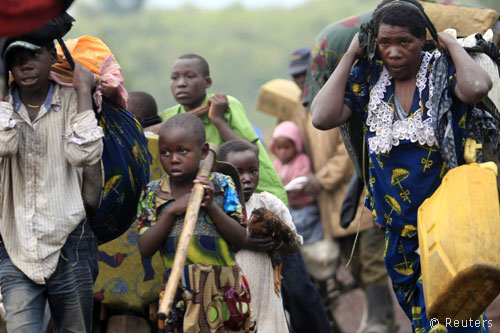Already a subscriber? Make sure to log into your account before viewing this content. You can access your account by hitting the “login” button on the top right corner. Still unable to see the content after signing in? Make sure your card on file is up-to-date.
The United Nations has issued a warning about the deteriorating situation in the eastern Democratic Republic of the Congo (DRC), particularly in and around the city of Goma, due to escalating conflict.
The head of the UN’s DRC peacekeeping mission MONUSCO, Bintou Keita, expressed serious concerns to the UN Security Council, stating, “One Congolese person out of four faces hunger and malnutrition. More than 7.1 million people have been displaced in the country. That is 800,000 people more since my last briefing three months ago.”

The crisis, due to an ongoing conflict, has escalated since February due to fierce confrontations between the Congolese army and the armed group M23, leading to significant territorial gains by the rebels. This surge in violence has resulted in approximately 250,000 people fleeing their homes in just a month, seeking refuge in and around Goma, where makeshift shelters have sprung up without basic aid. The World Food Programme spokesperson, Shelley Thakral, said, “Things are at a breaking point,” with people living in overwhelming and desperate conditions.

Digging Deeper:
This conflict is rooted in a 30-year history of violence driven by over 200 armed groups vying for control over the region’s rich mineral resources. The M23, in particular, has re-emerged as a formidable threat after a period of dormancy. In addition, the DRC has made accusations that Rwanda supports opposing armed factions with funding and weapons. Despite the claims, Rwanda has denied being involved in the security situation in the DRC.






